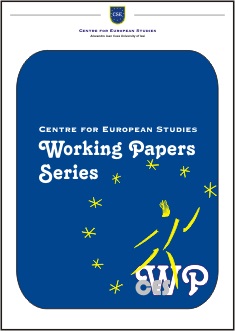THE LABOUR AND ECONOMIC COMPETITIVENESS OF REPUBLIC OF MOLDOVA IN THE EUROPEAN CONTEXT
THE LABOUR AND ECONOMIC COMPETITIVENESS OF REPUBLIC OF MOLDOVA IN THE EUROPEAN CONTEXT
Author(s): Veronica GARBUZ, Ana Maria BercuSubject(s): Economy
Published by: Editura Universităţii »Alexandru Ioan Cuza« din Iaşi
Keywords: economic competitiveness; employment; work relationships; European Union
Summary/Abstract: The economic competitiveness of a country is analyzed from several perspectives, including through the labor of the land available, gifted people’s skills and abilities, the level of employment, the standard of living and the level of population welfare. Currently, according to international hierarchies on competitiveness drawn up by the World Economic Forum (WEF), Republic of Moldova is in the second half of the league, failing, than with some small exceptions, to move towards more favorable positions. This is due to a set of factors whose action is felt for a long time, and improve prospects hierarchical position requires major revisions mentalities, policies, strategies and means of act ion. This article aims to analyze the theoretical and practical aspects on the role of labor, along with other factors in ensuring economic competitiveness of Republic of Moldova in the process of pre-accession to the European Union and integration into European economic structures. Efficient investment in human capital through education and training system should be an essential component of the country's strategy to ensure a high level of sustainable economic growth and employment knowledge-based workforce that provides both personal fulfillment and increased welfare and national competitiveness.
Journal: CES Working Papers
- Issue Year: 7/2015
- Issue No: 2A
- Page Range: 464-471
- Page Count: 8

